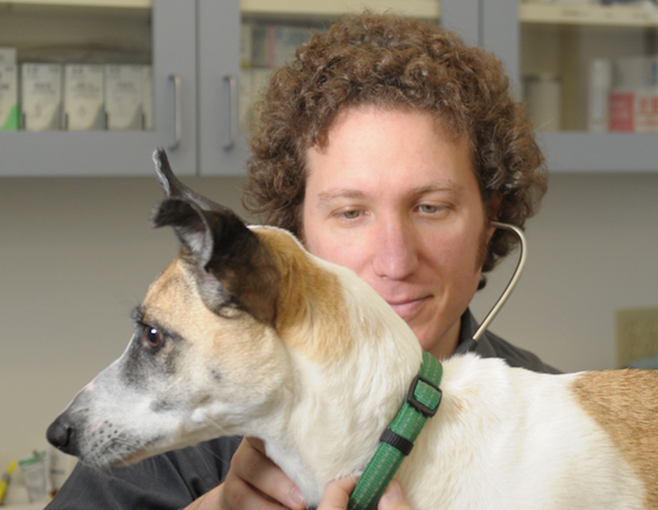Local veterinarian answers questions about holistic practices and cannabis for pets
August 1, 2018
Veterinarian Gary Richter has practiced veterinary medicine in the Bay Area for about 20 years. He describes himself as an integrative veterinarian that utilizes both western medicine and natural holistic care. He weaves the two together to get the best outcome for his patients. He recognizes that the public has very personal and positive experiences with medical cannabis. He believes it is natural that they are starting to see if those benefits would apply to their pets.
Q: How did you get started or did the idea get presented to you that cannabis would tie into your holistic practices?
A: For me, I’m always looking for different ways that I can help my patients. I’ve never been a person that would necessarily box myself in based on some preconceived notion. I’m going to go out and do my own research and figure out what works. Being here in the Bay Area, cannabis, especially medical cannabis, is clearly a very big thing — a very prominent thing. As such the more I researched, the more I investigated, the more it presented itself as a very logical next step from the standpoint of animals. I think it’s also worth saying that from the cannabis as medicine perspective medical cannabis is way more than CBD. There is many, many compounds found in cannabis that are very medically active and when used appropriately can be very effective, THC included.
Q: What does holistic mean, minus cannabis? What other holistic options are there for pets?
A: For me, holistic means any therapy that rather than targets a specific symptom, it’s more of whole body therapy. The treatments we would do here would be treatments like acupuncture, chiropractic, herbal therapy, nutritional counseling, hyperbaric oxygen therapy, physical therapy. Things that are going to treat the entire animal rather than looking at them as a list of symptoms.
Q: CBD for pets is discussed frequently when talking about separation anxiety or pain. How do you know or recognize if your pet has these issues?
A: Generally speaking, anxiety is usually fairly easy to recognize because that’s a behavioral thing. So maybe they’re destructive, barking or just visibly anxious. Pain can be a bit more difficult to evaluate but recognizing pain in animals is frequently about if there is some sort change in their behavior. Are they limping? Are they hiding? Are they withdrawn? Perhaps they’re not as interactive with owners as they normal are.
Q: If a pet owner thinks that cannabis may be beneficial to their pet but because of current laws cannot talk to their vet, what is the next step?
A: The first step I would recommend would be to contact their veterinarian anyway because depending on who their veterinarian is they may be able to have somewhat of a conversation. There are some resources out there that people can use for guidance. For example, I wrote a book that came out last year. It is about nutrition and integrative medicine in a very broad sense but there is an entire chapter dedicated to how to safely and effectively use medical cannabis with pets. What I would strongly suggest is that people seek out information that was put together by somebody who has a medical understanding of veterinary medicine. The problem that we frequently have is that people will go to a dispensary or a pet store and they’ll listen to the person behind the counter. Even though those people are generally very well-meaning, without an appropriate understanding of medicine as a whole, people sometimes can get disastrously bad advice.
Q: Is cannabis good for all animals?
A: It certainly can be. One of the big questions is about dosing. But in principle yes, it should be as effective as it is for any other species. I have a lot of patients whose owners have put their pets on cannabis and done very, very well.
Q: Is there any negative side effects that you have seen when using CBD?
A: With CBD, generally speaking, the biggest issue is if they give too much. The animal might get a little sleepy. Alternatively, if they are not giving enough or the wrong formulation it may just not work.
Q: Anything else pet owners should know about cannabis and holistic treatment?
A: I think with holistic treatment in general I would also encourage people to ask questions and explore options and get a second option. If something your veterinarian tells you doesn’t sit right with you, get a second option. In particular with someone who practices a slightly different scope of medicine than your regular veterinarian because maybe there’s other alternatives out there for you.







